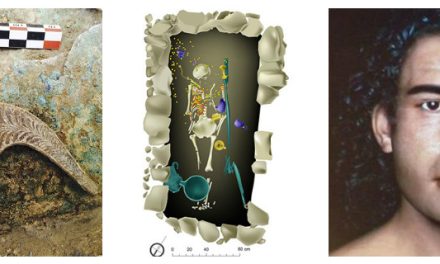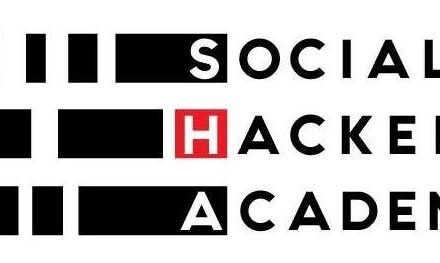Ted Diamantis is a 1st generation Greek-American Born in Chicago. His father was the principal of one of the largest Greek schools in Chicago for over 40 yrs and had Greek radio programs for over 55 yrs ( the oldest continuous running Greek radio program in the US at the time ). His mother was also a Greek school teacher and on air personality on the radio programs with his father. He graduated from Northern Illinois University, with Degrees in Economics and Political Science. In his first steps of his business career he worked for Allstate Insurance Commercial Division and later on for Gallagher Basset/ AJ Gallagher. In 1992 he launched Diamonds importers and since then he imports Greek wines to the United States with an ever-growing success.
In this interview* Ted Diamantis is telling his formidable story of how he started and gradually expanded a fabulous Greek wine import company in the US, about his business tactics, the obstacles he faced, the persons that gave him a hand or inspired him to become the big importer of Greek wines that he is today, his plans, vision and all about imports of Greek wines to America for the last 25 years. Ted Diamantis explains how the perception about the Greek wine is considerably improving in the US and how stronger marketing is still needed for the Greek wine to further penetrate the vast American market especially in the off-premise sector.
He also explains which Greek wine varieties are prominent in the US and underlines that the ancient Greek varieties are the future. He makes clear that Greece cannot be a player in the high volume/low price world but should focus on producing high quality wines at approachable prices. Ted Diamantis believes that there are ways to reconnect the 2nd and 3rd generation Greek-Americans with Hellenism and believes that the Greek-American organizations have a decisive role to play on that.
He finally considers that bringing people closer to quality Greek agricultural products is of the utmost priority for the image and growth of Greece.
How did you get to the choice to import Greek wines?
After graduation from university and dipping my toe in the corporate world (insurance risk management) I decided to rediscover my roots and quit the corporate world in 1989/90. I traveled to Greece to see family that I had not seen for 12 years and more importantly, to me at the time, to discover/identify business opportunities in Europe because of the new thing called the European Union/Common market.I lived and based myself in Athens; I traveled through Europe to get a feel of this new consumer group which was to be the largest consumer market in world. I attempted to identify the needs of this new market.
I launched my entrepreneur life as an exporter from the USA and Canada to Europe/Greece. My first venture was in medical equipment and heavy construction machinery for the new infrastructure projects that were pending for Greece and financed by Delors packages. My experiences in this world was less than fruitful since at the time 99% of healthcare was run by governmental agencies and layers of ineffective bureaucracy. A simple thing of introducing an electronic thermometer proved to be herculean task because of the graft and bureaucracy at the time. During this educational process I was undertaking ( I was only 26 yrs old at the time ) I met a young visionary in the wine world named George Skouras. This was totally fateful and began my foray in the wine world! Skouras was a young winemaker / entrepreneur at the time as well, and he sold me on the idea of wine as a way of life, and the potential of the Greek varieties, the land and the people of Greece.
Over the next year, George slowly convinced me to start importing his newly created labels (Skouras himself started in 1986 with the ground breaking wine, Megas Oenos). So in 1991/92 I returned to the USA and launched Diamond Importers as an importer/distributor in the Chicago market.
This was an aggressive undertaking because of many reasons.
1. the process of federal and local licensing 2. Incorporating 3. creating an infrastructure 4. no money
So I asked the most obvious person, my father, for a loan of $10,000 to start this new venture, which he gave me but with a lot of advice attached with this loan.
First, his advice on working with Greeks was that I have to possess a certain mentality that is not innate to non-native Greeks. It’s a skill set that needed to be learned, because growing up in the United States, we tend to be a bit less cagey and sometimes do not understand the nuances of dealing with a classic Greek business person. Secondly, he told me, don’t expect Greeks in the US to help you just because of your Greek origins or because of my father’s position in the community. I would need to be persistent and patient if I wanted to have success. Apart from the warnings from my father and what I soon came to realize on my own, Greek wines were generally not accepted at the time and Greece was not considered a country with quality wine production. The wines were pigeon-holed in the Greek ethnic world only. Additionally, Greek wines were stigmatized by the American consumer, from their experiences of consuming Retsina and inexpensive, less than adequate wines being offered in Greek restaurants in and around Chicago and the rest of the US (Chicago was the second largest Greek community in the US).
Not paying heed to my father’s advice and being a stubborn, determined Greek, I went head first into the wine world with zero experience and no guidance except a dream and a belief in the opportunity, because no one was talking about Greek wines in 1992/93. I quickly realized that I could not depend on the ethnic market to support or understand the new artisanal wines. The wines that Skouras was producing (please bear in mind that this was a new thing in Greece as well) were focused on quality and not as price sensitive commodity, I then came to the realization that I would have to go to the mainstream market and abandon the Greek restaurants, until they themselves evolved.
This made absolute sense once I thought about it. The Greek restauranteurs were not in the mindset, position or able to sell quality Greek wines to their customers. Additionally, they generally dealt with the old school Greek importers, which were old standing relationships. This made it difficult to enter the market, and on top of it all, they were not great at paying their bills in a timely fashion, if at all. Understanding this and learning very quickly that the mainstream market was much larger than the myopic ethnic market, which every mom and pop ethnic Greek food and wine importer were trying to feed on, I pivoted to trying to get non-Greeks to drink Greek wines and offer them in their stores and restaurants.
This proved to be monumental task. The lack of knowledge on the part of the American wine drinker about Greek wines, the lack of marketing of Greek wines by the Greek state, the lack of quality wines available, and the prevailing image of Greek wines created massive obstacles. In hindsight, it is absolutely true that sometimes when you don’t know all the challenges, you’re much more inclined to take chances. To take on this challenge, I knew I had to educate myself on wine. I took wine courses, I worked harvest for Skouras for 3 seasons and eventually, I strategically started working for highly respected Illinois distributor Heritage Wine Cellars in order to learn the business. I was lucky that a sage veteran of the wine industry, the late Gerald Hirsch, took me under his wing in 1995 to “teach me the business.” This is when I truly started to understand and learn what it takes to build wine brands and create a new category of wine.
For the next 12 years, I worked as a salesperson and then as a key account specialist, selling, learning and becoming exposed to some of the great wine producers from around the world. During this same time period, I was developing my company and marketing my Greek producers (at the time: Skouras, Antonopoulos, Chateau Carras) with the encouragement of the ownership of Heritage and guidance of wine producers from the US and around the world that I was working with as a Heritage employee.
This afforded me the opportunity to move slowly but carefully in identifying potential markets and meeting distributors across the US. Most importantly, acquiring knowledge and information in turn helped Skouras and my other producers hone their craft. This was done by supplying them insight and information that other Greek producers didn’t have access to at the time, such as trends, labeling, consumer profiling, price points, marketing strategies, farming techniques, winemaking techniques..etc. These are some of things that Skouras and a few others grasped on to in order to help themselves fast track their success in their early years.
Flash forward, Diamond Wine Importers has evolved into a full-time job and company. We have carefully and painfully developed a distributor network in 47 states. Since I was around at the birth of the renaissance of wine making in Greece, I was fortunate to work with, I believe, the pioneers of the modern Greek wine industry. I have curated the portfolio to represent the original “disruptors” of the Greek wine world. These individuals, such as Skouras, Sigalas on Santorini, Alpha Estate in Amydeon, or Douloufakis in Crete, to name a few, are the type of visionaries that we work with.
Ted Diamantis: “What makes Greek wine unique it’s about the ecosystem of Greece, its coastal Mediterranean climate, coupled with more extreme mountain climatic conditions as well. The soil profiles are varied and contain many trace minerals. The proximity to the seas also allows for favorable maritime climatic conditions to occur and of course, its wide array of ancient indigenous varieties adds to the rich tapestry of the Greek wine landscape”.
How competitive is the Greek wine in the US? What should be done to further boost its competitiveness?
Today, because of the heavy lifting of building a base of understanding of the Greek varieties and regions which has been done by individuals and companies like my own, Greek wines are very competitive when given an opportunity in terms of quality. Even though there has been an evolution of wine production in Greece, the USA still proves to be a challenge. USA is the most competitive market in world-therefore to penetrate and establish a wine or wine region requires many factors.
1. Price quality ratio 2. Proper labeling so the US consumer can read and remember 3. Education of the consumer of the region and what makes it special – differentiation 4. Engaged distributor partners 5. Constant reinforcement of the above mentioned points 6. Branding of Greece and stick to the overarching brand of Greece, which currently doesn’t exist.
Today Greece only exports approximately 400,000 9L cases of wine to the USA, which is a remarkably small quantity, compared to the size of the entire US wine market. For example, a single California or Spanish label sells as much as our entire country. We lag behind Israel in total case exports and Portugal (dry wines). While this can be considered disappointing by some, especially some individuals that may have been involved in the effort for over 25 yrs, I consider it an opportunity for growth.
The nominal value per case has grown considerably, which means we are replacing the inferior inexpensive wines with higher quality wines. The acceptance of Greece as a quality wine producing country has changed, and now wine professionals deem Greece as one of the great wine producing cultures on the globe. Consumers are starting to seek Greek wines and have a positive opinion, compared to the negative opinion when I started my crusade.
Much more still needs to be done. We have not scratched the surface in the efforts to attract the everyday wine drinker…Greece is still exotic to them and this is mostly due to lack of information and awareness. We have some very positive, measurable success in the on premise trade (restaurants), but we are horribly behind in the off-premise sector (retail stores). This is very important because 78% of all cases are sold in retail and 55% of all dollars spent on wine is in retail. For example, as a category Greek wines are approximately 85% on premise and 15% off-premise. With a lot of hard work and a lot of emphasis by our salesforce and distributors, we as Diamond are at 65% on and 35% off. That is why we as a company are seeing more growth, as our long-term goal is to be 50/50.
As we see it, there is a finite amount of Greek wines that a non-ethnic restaurant can or would represent on their wine list. This sector has become much more competitive in the last 6 years, with the entry of more Greek wine labels and more importers entering the market. Therefore, to go fishing where the fish are at (the retail world), Greece needs more help via marketing to communicate its message to the consumer directly, to create pull.
Importers and distributors can create push, but consumer pull is needed to convince the retail that if they create a Greek section in their store, the products will sell and sell with velocity, generating repeat customers. As a country we have to create awareness, and there are many different and contemporary ways of accomplishing this that Greece is not doing!
What Greek wine varieties are the most popular in the US? Would you think that more Greek wine varieties can make it to the US?
The wines and varieties that are leading the charge at this time are mostly white wines. I believe this has happened because Greece has high quality white wines and for the American consumer, the white varieties of Greece are easier and more familiar flavor profiles to grasp. High acidity, minerality, tropical or citrus fruit profiles on the palate.
Of the Greek whites that are leading the charge, Assyrtiko from Santorini is the breakout champion over the last 8 years, and now Assyrtiko from other parts of Greece is getting some attention because of Santorini. Moscofilero is still prominent and I think it will have a new resurgence. I believe that Vidiano from Crete will be a popular variety because it produces wines that have more richness, and that age extremely well (Vidiano is still an unknown in Greece, but so was Assyrtiko 10 yrs ago). There are also the non-indigenous varieties like Sauvignon Blanc, and blends of native and non-indigenous varieties, that are working well in the market.
In regards to reds, they are on the rise as well, with xinomavro getting the most attention right now, but Aghiogirtiko and Liatiko have a bright future as well as Mavrotragano.
Overall, it is the ancient Greek varieties that are the future of Greece. In recent years, because we have better understanding of our indigenous historical varieties and are using proper farming and vinification techniques, has resulted in producing better wines with identity that are not homogenous. This will eventually create a consumer group that will stay loyal and captive to Greek wines for generations, or until the other wine regions around the world start planting our varieties.
What’s special with the wines of Greece that would make a real difference between other wine producing nations?
What makes Greece unique from other wine regions? First, it’s about the ecosystem of Greece. It’s a coastal Mediterranean climate, therefore temperate but coupled with more extreme mountain climatic conditions (Greece is the third most mountainous country in Europe) as well. The soil profiles are varied and contain many trace minerals. The proximity to the seas also allows for favorable maritime climatic conditions to occur and of course, its wide array of ancient indigenous varieties adds to the rich tapestry of the Greek wine landscape. Therefore, we have diversity and complexity in a very small geographic footprint. This affords Greece the ability to make wines that have great expression of the fruit characteristics, elegance and high natural acidity. While all this seems great, Greek vintners tend to struggle with their identity and potential position in the US market.
In my opinion, Greece can never be a player in the high volume/low price world of wine production because of these aforementioned factors. We cannot achieve economy of scale because of the lack of supporting infrastructure such as glass production. Also, our geographic position (southern and eastern most country of Europe) isolates us and makes shipping of bottles and corks, capsules, machinery, etc. more expensive than Western Europe. What we can do as a country is produce high quality wines at approachable prices for the US consumer. Actually the fastest growing segment in the US wine market are wines that retail between $12- $22 per bottle. Greece is uniquely equipped to be a strong player in this segment. Overall our wines tend to deliver at these prices, but we must stay vigilant to keep these price points, because at these prices consumers will take a chance on an unknown wine, like a Greek wine. Of course, there are many factors when it comes to pricing such as currency exchange rates, grape scarcity and wine demand.
Please tell us about the role of Greek-American organizations in promoting Greek businesses and supporting Greek issues.
While the financial crisis of Greece over the last 10 years has been a horrible experience for Greeks in Greece, it has led to some positive outcomes. One of these results was the galvanization of groups within the Greek diaspora to help Greece via lobbying and/or direct engagement. This is best illustrated with the creation of the Hellenic American Leadership Council (HALC). HALC was a new type of organization led by professionals and patriots with a true agenda of activism and full engagement with the American political system, local and national, and the Greek political world. They also created a forum for discussion and involvement, which has absolutely helped to create networks and bridges within the Greek American community and Jewish- American communities. For example, co-lobbying on energy and security issues has really helped Greece in Washington DC.
HALC has directly and indirectly helped Greece and Greek products. It has achieved this by getting young Greek- Americans involved and exposed to the process of lobbying and activism, creating awareness of the geopolitical issues that have an impact on the eastern Mediterranean and have ramifications to US policy as well. In terms of helping Greek products, it has helped elevate the image and educate new Greek-American consumers, who in most cases do not have direct contact with Greece, since most are now two to three generations removed. What I believe is that it is not only hard diplomacy that wins the political and diplomatic battles, it at times can also be soft diplomacy, winning of “hearts and minds” that helps carry the day. The old adage that “all advertising is good advertising” has held some credence for Greece. Americans, who are less informed on certain topics, suddenly heard about Greece and! its issues. At times they became curious and very many became empathetic to the plight, therefore creating a potentially sympathetic image for Greece and hopefully some curiosity for all things Greek. By creating positive imaging of Greek products and Greek people (especially during the height of the refugee crisis) we eventually created a positive emotional connection for 2nd and 3 + generation Greeks and non-Greeks. Wine and tourism can be, and are some of these soft tools that can and should be used to achieve this goal. HALC has made great strides in perpetuating and encouraging this belief. The best ambassadors for Greece and Greek products are the highly educated, over achieving young Greek-American Diaspora. If Greece is to remain vibrant and relative, and if the Greek language is to survive, bringing people closer to quality Greek agricultural products is fundamental. After all, we eat and drink every day. Just visiting Mykonos or going to the ancestral village once a decade won’t achieve this… pride in all things Greek, won’t help creating jobs and industries in Greece.
*Interview by Efthymis Aravantinos, Press Counselor at the Embassy of Greece to the USA













